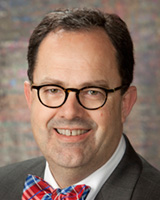
Medawar Prize - Call for Nominations | Deadline - January 31, 2018

The Medawar Prize, named after Society co-founder Sir Peter Medawar, is recognized as the world's highest dedicated award for the most outstanding contributions in the field of transplantation. The Medawar Prize has been awarded at each of our Society's biennial Congresses since 1990.
The award recognizes the outstanding investigators whose contributions have had such a profound influence on the field of organ transplantation. The Medawar Prize is universally considered to be commensurate with the most outstanding world prizes for scientific achievement.
Click here for more information and to download the nomination form
Guide to TTS 2018 FOR Students and Young Investigators
 The Young Investigators Committee has planned numerous activities at TTS 2018 and have put together a presentation outlining the onsite activites, award opportunites and a great Congress Attendance Justification Toolkit!
The Young Investigators Committee has planned numerous activities at TTS 2018 and have put together a presentation outlining the onsite activites, award opportunites and a great Congress Attendance Justification Toolkit!
TRANSPLANT INFECTIOUS DISEASE NOVEMBER 17 WEBINAR

MULTI-DRUG RESISTANT ORGANISMS IN SOLID ORGAN TRANSPLANTATION
FRIDAY, NOVEMBER 17, 2017 - 9AM EST (MONTREAL TIME) / 10PM SINGAPORE
 |
Speaker: Ban Hock Tan, MD, MBBS, FRCP Senior Consultant, Dept. Infectious Diseases Singapore General Hospital Singapore |
 |
Moderator: Lara A. Danziger-Isakov, MD, MPH Director, Immunocompromised Host Infectious Disease Cincinnati Children’s Hospital Professor of Pediatrics at the University of Cincinnati Cincinnati, OH, USA |
Click here for more information and to register.
TRAINEE TRACK WEBINAR WEDNESDAY, NOVEMBER 22, 2017
TRAINEE TRACK WEBINAR EPITOPE MATCHING: WHAT IS IT, AND WHAT IS ITS RELEVANCE?
WEDNESDAY, NOVEMBER 22, 2017, 11AM EST (MONTREAL TIME)
 |
Speaker: Peter Nickerson, BSc (Med), MD, FRCPC, FCAHS Distinguished Professor of Internal Medicine and Immunology Vice-Dean of Research Rady Faculty of Health Sciences University of Manitoba Medical Director of Transplant Manitoba and Medical Advisor Organ Donation and Transplantation Division Canadian Blood Services Winnipeg, Manitoba, Canada |
 |
Moderator: Robert Liwski, MD, PhD, FRCPC Medical Director, HLA Typing Laboratory Staff Hematopathologist, Division of Hematopathology Queen Elizabeth II Health Sciences Centre Professor, Departments of Pathology and Microbiology & Immunology Dalhousie University Halifax, Nova Scotia, Canada |
| Overview | Adequacy of immunosuppression is central to holding the alloimmune response in check. Clinicians and patients constantly seek to lower immunosuppressive therapy to minimize the risk for serious adverse events or avoid annoying side-effects leading to clinician-guided under immunosuppression and patient nonadherence. Unfortunately, at present there is no validated predictive biomarker to inform clinicians who can and cannot be safely minimized. The risk of minimization is de novo DSA resulting in antibody-mediated rejection, transplant glomerulopathy and premature graft failure. Moreover, once this process is underway, at present physicians have no effective therapy to turn it off. In the last few years it has been appreciated that computational approaches predicting potential antibody binding epitopes on the mismatched donor and the recipient HLA molecules can be used to predict alloimmune risk for de novo DSA, late acute rejections and graft failure. If this is further validated, then we may have for the first time a predictive biomarker able to aid clinicians safely personalize immunosuppressive therapy. |
Click here for more information and to register.
FEATURED ARTICLE - Transplantation

Submitted by Dr Joel Thomas Adler, Editorial Fellow, Transplantation.
Organ Trade: Knowledge, Awareness, and Nonlegislative Responses.
Ambagtsheer F, Weimar W.
Transplantation. 2016 ;100(1):5-6.
The scale of the organ trade is difficult to estimate. Ambagtsheer and Weimar provide an eResources summary (complete with electronic resources) of what is known about organ trade and current steps to improve legislative responses worldwide. The authors summarize the work that they and others have done through the HOTT project (http://www.hottproject.com): identifying participants in organ trade, understanding the difficulties of law enforcement with respect to organ trafficking networks, and creating indicators to differentiate legal from illegal transplant activities.
Reminder TTS Nominations
Deadline - January 31, 2018
TTS is seeking nominations for three Officer positions that will be vacated in 2018: President-Elect, Vice President and Treasurer. In addition, five of the 12 Councilors-at-large will be changing.
Click here for to nominate someone today! (Requires login)
IN THE NEWS
Innovations in QEII pathology lab have worldwide impact
October 20 - Minutes and seconds equal precious moments in organ transplantation, so when Dr. Robert Liwski and his team found a way to trim the time it takes to confirm an organ match by 70 per cent, the world listened. Dubbed the Halifax Protocol, Dr. Liwski, pathologist and director of the Human Leukocyte Antigen (HLA) lab at the QEII Health Sciences Centre was motivated to innovate when he realized the original crossmatch protocol had last been updated in 1989.
New review addresses aspects of nutrition in liver transplant candidates with cirrhosis
October 26 - Poor nutrition is common in patients with liver failure, or cirrhosis, and it can lead to muscle wasting, weakness, fatigue, and worse outcomes before and after patients undergo liver transplantation. A new review published in Liver Transplantation addresses aspects of nutrition in transplant candidates with cirrhosis and emphasizes the need to screen all patients to identify those with poor nutritional status, especially those suffering from muscle wasting.
Zika treatment could result from UC San Diego research
October 27 - The Zika virus is transmitted from a mother to her fetus by infected cells that will later develop into the brain's first and primary form of defense against germs, scientists at the UC San Diego School of Medicine reported Friday. The discovery could open a pathway for a potential treatment for infected patients.
Children awaiting heart transplant survive longer with VADs than ECMO
October 24 - Ventricular assist devices (VADs) foster improved survival for children awaiting heart transplantation when compared to the current standard of extracorporeal membrane oxygenation (ECMO), according to a new study in the Journal of the American College of Cardiology..
The Rules of the Doctor’s Heart
October 24 - NY Times - Every medical case, to paraphrase the writer Viet Thanh Nguyen, is lived twice: once in the wards and once in memory.
Japan - The Organ Transplant Law 20 yrs on / Organ donor system’s rules end up hampering donations
October 25 - The Organ Transplant Law came into effect on Oct. 16 in 1997. In Japan, where there was deep-rooted resistance to the transplantation of organs from brain-dead donors, the legislation came about after lengthy debate. However, organ donors are significantly more scarce in the nation than in other countries.
Contact
Address
The Transplantation Society
International Headquarters
740 Notre-Dame Ouest
Suite 1245
Montréal, QC, H3C 3X6
Canada
Используйте Вавада казино для игры с бонусом — активируйте промокод и начните выигрывать уже сегодня!


